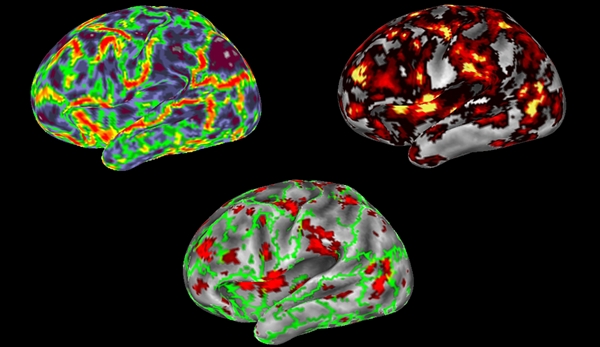16 January 2017. A psychiatric treatment center received what it calls “a major grant” for a research program on the use of MRI scans to better understand complex mental illnesses. Financial aspects of the award from philanthropists Bill and Deborah Ryan to the Austen Riggs Center in Stockbridge, Massachusetts were not disclosed.
The grant supports a new research program at Austen Riggs Center, called MRI-based Characterization of Complex Psychopathology. The program is expected to explore ways of gaining new detailed insights from magnetic resonance imaging, or MRI, on characteristics of psychiatric disorders, particularly for understanding an individual’s response to psychotherapy. MRI scans are already widely used for diagnosing many brain disorders, such as stroke, aneurysms, tumors, and infections.
Findings from the project are expected to fit in with new directions in mental health research seeking to put psychiatric disorders into a broader context of individual differences in human behavior. The Human Connectome initiative, for example, is mapping neural pathways underlying functions of the brain, with much of the data generated by these studies coming from images of the brain.
The goal of the Human Connectome Project is a comprehensive brain wiring map to navigate neural circuits — from individuals both diagnosed with psychiatric disorders and those with no indications of disease — which can disclose reasons for disorders resulting from misfiring circuits. One of the Human Connectome’s main research initiatives is a collaboration between Massachusetts General Hospital affiliated with Harvard University and UCLA that uses MRI images with advanced analytical software to delineate neural connections in the brain.
The new research will also likely contribute to an emerging framework for understanding individual differences in mental functions and health, known as the Research Domain Criteria matrix, which considers normal and pathological functions on a spectrum, rather than looking at psychiatric diseases as unique conditions. The Austen Riggs Center says many of its patients are admitted with complex disorders, which will enable its medical staff and researchers to take advantage of these and other recent developments in neuroscience and clinical practice.
Aligning research findings and clinical practice in psychiatric disorders is possible but not often easy, according to Andrew Gerber, the Austen Riggs Center’s CEO and medical director. In an essay published on the center’s web site earlier in January, Gerber said advances such as genetics and physiological images “have the potential of adding depth and dimensionality to the understanding of mental illness, and of informing the treatment trajectory.”
He cited, however, a recent study that highlighted the difficulty of linking research in genetics with the diagnosis of depression. The authors, Gerber noted, found “an opportunity to align these new genetic findings with the vast amount of data collected from patients in the clinical setting, including from electronic health records, surveys, and other materials.” The researchers discovered clinicians’ notes were particularly rich sources of insights, which led to identification of 15 genetic markers apparently associated with depression. Identifying these biomarkers can help understand why certain drugs work with some patients and others don’t.
Read more:
- Stem Cells Banked for Bipolar Disorder Research
- Commercial Data Yield Genetic Links to Depression
- Blood Test Guides Depression Drug Decisions
- Smartphone App Helps Deal with Negative Moods
- $500K Challenge Seeks Mood Research Ideas with iPhone
* * *


 RSS - Posts
RSS - Posts
[…] Grant Funds MRI for Mental Illness Understanding […]
[…] Grant Funds MRI for Mental Illness Understanding […]